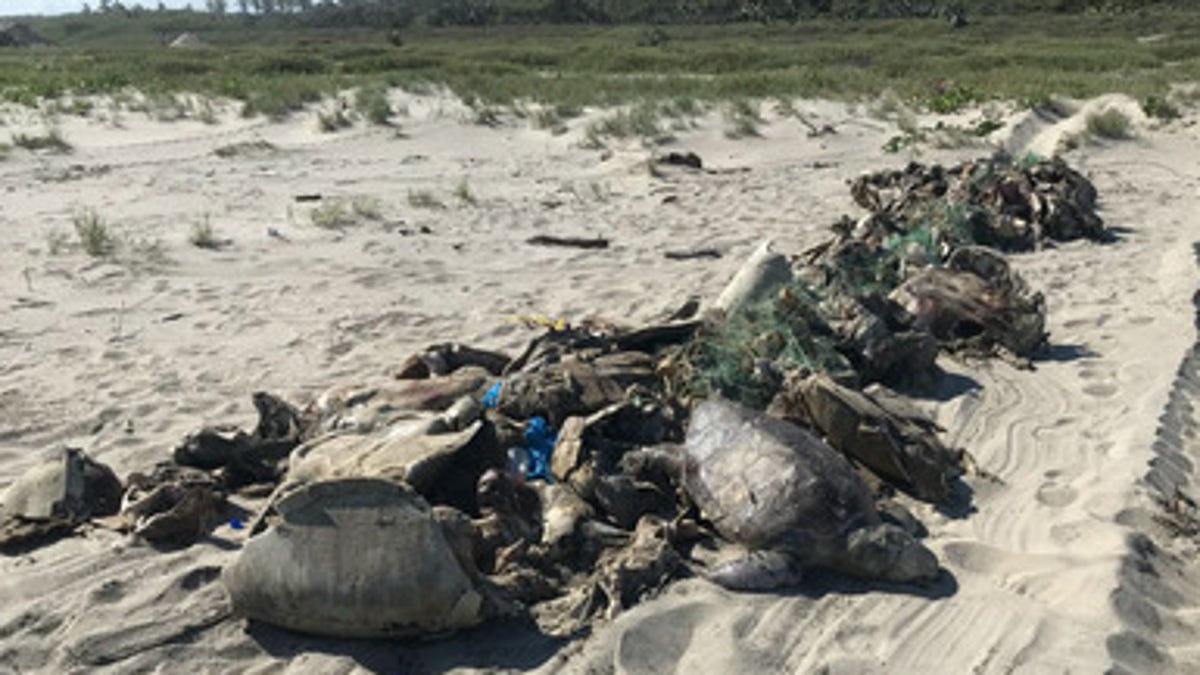
The turtle carcasses were brought ashore and buried in two pits (PROFEPA)
More than 300 vulnerable turtles have been found dead, entangled in illegal fishing nets off the Mexican coast.
In a statement Mexico’s Federal Attorney for Environmental Protection (PROFEPA) said that the decomposing olive ridley turtles were found in the ocean off the coast of Oaxaca. Responding to reports from local people, PROFEPA, working with the Mexican Navy, the Mexican Turtle Center, the Universidad del Mar, fishermen, and officials from the Municipality of Santa María Colotepec, investigated the grisly remains.
Olive ridley turtles are classified as vulnerable by the World Wildlife Fund.
GRAPHIC IMAGES: ENDANGERED SEA TURTLE STRANGLED BY BEACH CHAIR
The turtles had been dead for about eight days, PROFEPA said, noting that the reptiles had drowned after getting caught in the prohibited fishing nets. According to the Federal Attorney’s office, the animals became trapped in nets used for riparian fishing on riverbanks. These nets, it explained, are not used to fish shrimp and tuna from the ocean.
Officials took the turtles’ remains ashore and buried them in two pits. PROFEPA said that it will be working with Mexico’s National Commission of Aquaculture and Fishing CONAPESCA to inform local fishermen about the risks posed by illegal nets.
Olive Ridley turtles got their name thanks to the olive green hue of their shells, according to the WWF. “Their vulnerable status comes from the fact that they nest in a very small number of places, and therefore any disturbance to even one nest beach could have huge repercussions on the entire population,” the organization said.
KILLER WHALES ARE DYING OFF IN THE PACIFIC NORTHWEST
The International Union for Conservation of Nature and Natural Resources also lists the species as vulnerable.
The incident follows the deaths of more than 100 sea turtles, whose carcasses recently turned up at a wildlife sanctuary on the Pacific coast of Chiapas state.
Officials said that 102 olive ridley, six hawksbill and five Galapagos green bill turtles were found dead at the Playas de Puerto Arista Sanctuary between July 24 and Aug. 13.
Authorities have been testing the water and conducting autopsies to determine possible causes of death. They suspect asphyxiation, fishing hooks or harmful algae blooms may have killed the turtles.
The Associated Press contributed to this article.
Follow James Rogers on Twitter @jamesjrogers








































